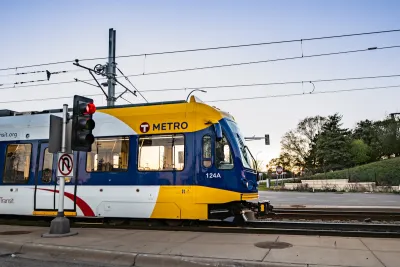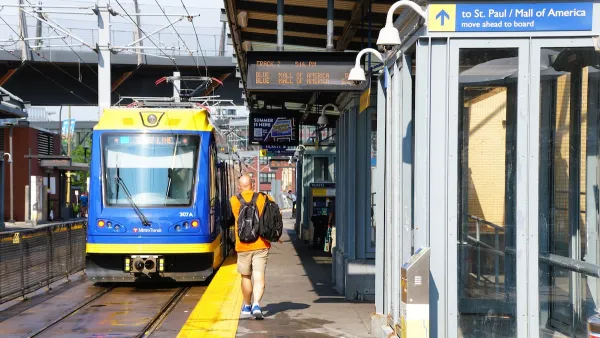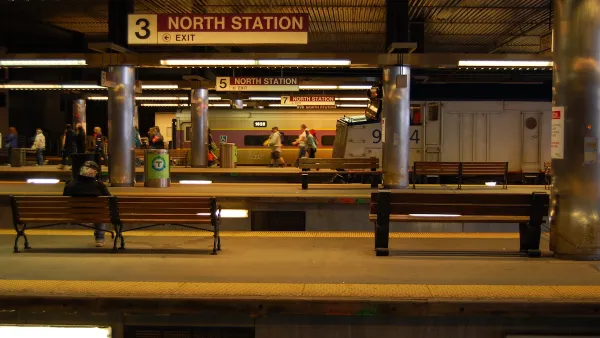The agency is pairing with nonprofit partners to provide on-site services and resources to riders and boosting fare enforcement without police involvement.

Minnesota’s Metro Transit agency is implementing a public safety program aimed at reducing open drug use on transit vehicles, which riders cite as a top reason for feeling unsafe, as well as enforcing fare collection, writes Jared Brey in Governing.
As Brey explains, “Pandemic-era ridership losses reduced social pressure on buses and trains, and led to increased smoking and drug use not just in the Twin Cities but all over the U.S.” To improve safety, Metro Transit launched its Transit Service Intervention Project, which partners with nonprofit service providers to “offer everything from on-the-spot health care from registered nurses to housing assistance to mental health and addiction services.”
A second phase of the plan, the Transit Rider Investment Program, “involves Metro personnel — not police — enforcing payment on transit vehicles by handing out fines and citations to fare-jumpers.”
Sam Rockwell, executive director of Move Minnesota, says the programs could help improve rider perception and increase ridership because, “More than anything else, full trains and buses are what will keep the system feeling safe.”
FULL STORY: Minnesota's Top Transit Agency Tries New Approaches to Public Safety

Analysis: Cybertruck Fatality Rate Far Exceeds That of Ford Pinto
The Tesla Cybertruck was recalled seven times last year.

National Parks Layoffs Will Cause Communities to Lose Billions
Thousands of essential park workers were laid off this week, just before the busy spring break season.

Retro-silient?: America’s First “Eco-burb,” The Woodlands Turns 50
A master-planned community north of Houston offers lessons on green infrastructure and resilient design, but falls short of its founder’s lofty affordability and walkability goals.

Test News Post 1
This is a summary

Analysis: Cybertruck Fatality Rate Far Exceeds That of Ford Pinto
The Tesla Cybertruck was recalled seven times last year.

Test News Headline 46
Test for the image on the front page.
Urban Design for Planners 1: Software Tools
This six-course series explores essential urban design concepts using open source software and equips planners with the tools they need to participate fully in the urban design process.
Planning for Universal Design
Learn the tools for implementing Universal Design in planning regulations.
EMC Planning Group, Inc.
Planetizen
Planetizen
Mpact (formerly Rail~Volution)
Great Falls Development Authority, Inc.
HUDs Office of Policy Development and Research
NYU Wagner Graduate School of Public Service




























